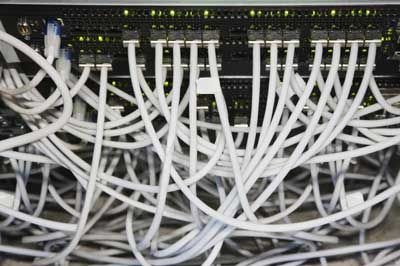Image Gallery We're wired in our personal lives and our work
Technology affects almost every aspect of our lives. Just look around you and you'll see how wired we are. Thanks to the Internet, virtually anything you desire can be delivered to your door in a matter of days. Personal information is more accessible over the Internet as well -- you can look up everything from a long-lost cousin to the registered sex offenders in your neighborhood. You can even trade stocks or file taxes online. Parents don't need to lose sleep waiting for their teenage daughter to come home -- they can just call her cell phone, or send an unobtrusive text, to check up.
Advertisement
But as much as our personal lives have changed, the business world has revolutionized almost beyond recognition in the past few decades. Technology -- and we mean the advances in communication and information technology -- has changed the face and the pace of business.
As communication and information travels faster and faster, the world seems smaller and smaller, and this has large implications for the way we conduct business. Storing important in files on a computer rather than in drawers, for instance, has made information easily accessible. Using e-mail allows businesses to communicate and send these files quickly to remote locations outside of an office.
Many argue technology has blurred the line between professional and private lives. Wireless Internet, cell phones and BlackBerries have made it easy to work from home -- or for that matter, from the beach. The fact that it's easy to work from the beach compels people to do so. On the flip side, people also feel compelled to use Internet access at work for personal reasons. In this way, technology allows workaholics to work and slackers to slack.
So, exactly how has technology changed the way we do business? In countless ways, but we'll highlight the major ones on the next page.
Advertisement




